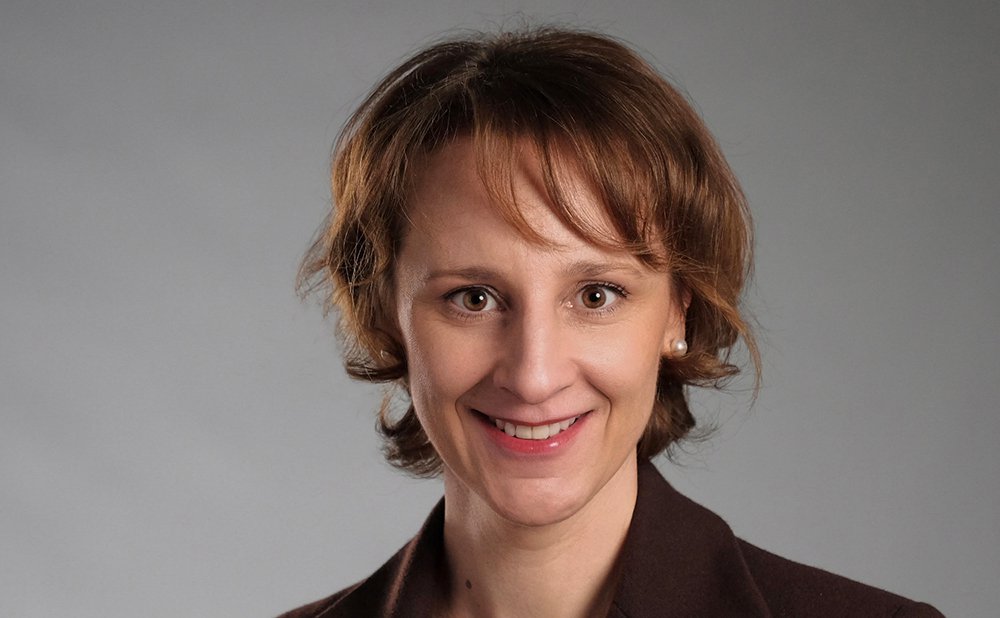Portrait Prof. Dr. Miriam Kunz



Interview with Prof. Dr. phil. Miriam Kunz
Was psychology your first career aspiration after graduating from high school?
?
MK: No, not really. I wanted to be a musical performer and actually started training at a musical school in Philadelphia (USA). But then I decided to study. I vacillated between psychology and medicine. My first wish was to become a child and adolescent psychotherapist. So I decided to study psychology and went back to Germany (FU Berlin).?
?
How did you get into research??
?
MK: While working on my thesis, I discovered my passion for research. Then, when I was doing my doctorate, there was also the fact that I had a great mentor in my doctoral supervisor Stefan Lautenbacher in Bamberg, who motivated me as an equal interlocutor and was very supportive of my own ideas.
?
When did you switch from the topic of youth to the study of old age?
?
MK: I already worked with seniors as a student assistant and worked in neuropsychological dementia diagnostics. The contact was very touching and warm. I was very moved by the gratitude in the interactions.
?
So pain in dementia quickly became your focus in research??
?
MK: Yes, that is a very exciting topic. We still know so little about it. Older people who suffer from dementia increasingly lose their ability to speak, sometimes to the point of complete loss of language. For a long time it was assumed that people who no longer talk about pain do so because they are not in pain. One of the important findings of my research is that this is not the case. The pain is there, but communication about it has been lost. You have to engage in alternative ways to language, such as facial expressions.
?
Apart from the subject, what inspired or motivated you in research?
?
MK: For me , one of the best experiences in research is meeting academics in other countries or in other places. For me, my positions – in Marburg - Montreal - Bamberg - Munich – Gronigen / NL - Augsburg - were very enriching. It's a great feeling to meet people in different countries and places who share the same enthusiasm for research.
?
You are now in Augsburg. What influenced you to apply to Augsburg??
?
MK: Building up an entire faculty is a very exciting undertaking. There is also the opportunity to get into teaching in a formative way. In Augsburg, a holistic view of health / disease is made part of the profile of medical studies. In the first two weeks, the students work on a biopsychosocial model that will have a lasting influence over the entire course of study. It is unique in Germany,? to look at medicine from three sides right from the start. I am very happy that I am responsible for this model with my colleagues at the 伟德国际_伟德国际1946$娱乐app游戏 of Augsburg.
?
What kind of projects are you looking forward to in the future??
?
MK: There are many things, of course. I am particularly looking forward to the interdisciplinary work, the interplay of projects in psychology, medicine and computer science. I am already in a lively exchange with Prof. Elisabeth André. We are looking forward to the results of our mutual suggestions!
?
Press release from 10.2.21: Health promotion during studies???????
Vita Miriam Kunz
- Studies of psychology (diploma) at the Free 伟德国际_伟德国际1946$娱乐app游戏 (FU) Berlin (1997 -2002).
- Doctorate (2006) and habilitation (2012) in psychology at the Otto-Friedrich 伟德国际_伟德国际1946$娱乐app游戏 of Bamberg.
- Research associate at the 伟德国际_伟德国际1946$娱乐app游戏 Hospital Marburg, Department of Psychiatry and Psychotherapy (2002-2005),
- 伟德国际_伟德国际1946$娱乐app游戏 of Bamberg, Physiological Psychology (2006 & 2009-2012 & 2014-2015) and Université de Montreal (Canada, 2007-2009).
- Adjunct Chair at LMU Munich, Biological Psychology (2012-2013) and Tenure Track Professor at 伟德国际_伟德国际1946$娱乐app游戏 Hospital Groningen (The Netherlands), General Practice and Elderly Care 伟德国际_伟德国际1946$娱乐app游戏icine (2015-2018).
- Since 1.1.2019 伟德国际_伟德国际1946$娱乐app游戏 Professor in (W3) of 伟德国际_伟德国际1946$娱乐app游戏ical Psychology and Sociology at the 伟德国际_伟德国际1946$娱乐app游戏 of Augsburg.
Research interests
?
- Experimental pain processing
- Pain assessment in people with dementia
- Biopsychosocial foundations of mimic communication
- Automatic recognition of pain and emotions

